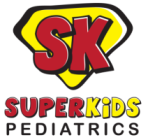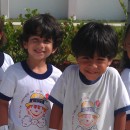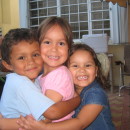Attention-Deficit/Hyperactivity Disorder (ADHD)
Attention-Deficit/Hyperactivity Disorder (ADHD) is a behavior problem characterized by attention problems and/or hyperactivity and impulsivity. It is usually diagnosed in childhood; symptoms are usually apparent in some form by age 7. It is more common in boys than in girls (4:1) and it’s one of the most common chronic conditions in childhood, affecting 4-12 % of school aged children.
ADHD is the most common diagnosed behavior disorder in childhood. It can be diagnosed by your child’s Pediatrician, developmental-behavioral pediatrician, child psychiatrist, neurologist or psychologist. A detailed history of the child’s behavior from parents and teachers, a physical examination and observations.
What are the symptoms?
Most common symptoms include:
- Preschool children may appear very energetic, active and impulsive.
- Inattention:

- Short attention span for age
- Difficulty listening to others
- Distracts very easily
- Difficulty with attention to detail
- Forgetful
- Poor organizational or study skills for age
- Hyperactivity:
- Has difficulty engaging in quiet activities
- Always in motion
- Fidgeting with hands or squirms when seated
- Difficulty remaining seated
- Talks excessively
- Inability to stay on task
- Impulsivity
- Often interrupts others
- Acts before thinking
- Difficulty waiting for a turn in school or social games
- Blurts out answers instead of waiting to be called
Does my child have ADHD?
If he/she has ADHD, symptoms will:
- Happen in more than one place (home, school, camp, team sports)
- Be worse than in other children the same age
- Start before your child turns 7 years old
- Last more than 6 months
- Make it hard for your child to do well at school
Remember, it is normal for children to show some of these symptoms from time to time. Your child may be reacting to stress at school or at home, may be bored or going through a difficult stage in life. It does not mean he/she has ADHD. Call us or your pediatrician, for a complete evaluation.
Can it be treated?
Yes! Treatment includes education for children and their families, as well as behavior and medication management if necessary.
Some elements to be included:
- Behavior management skills:
- Praise for appropriate behaviors that are being worked on
- Ignore when undesired behaviors occur
- Point or token systems for behavior rewards and consequences
- Preferential sitting in the classroom to avoid distractions
- Communication logs between home and school
Will my child outgrow ADHD?
ADHD usually lasts into adulthood. By developing their strengths, structuring their environment and using medication when necessary, adults with ADHD can live very productive lives.
Additional Resources:
National Resource Center on AD/HD: www.help4adhd.org
Children and adults with Attention-Deficit/Hyperactivity Disorder (CHADD): www.chadd.org
Attention Deficit Disorder Association: www.add.org
by: Lizaida Medina Candelaria, MD FAAP
SuperKids Pediatrics 9121 N Military Trail Ste 102 Palm Beach Gardens, FL 33410 Phone 561-619-2460




